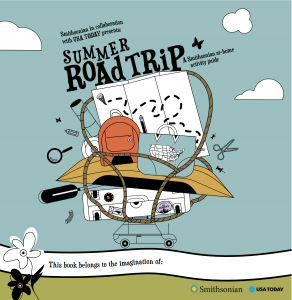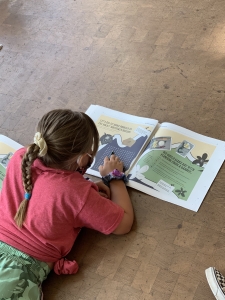Pandemic Perspectives

The National Museum of American History is launching an engaging series of free virtual colloquium presentations that combine questions raised by the current pandemic with explorations of historic objects in the national collections. Topics to be explored include Voting During a Pandemic and How Your Ancestors Had Fun at Home While Quarantining. Curators and historians will virtually share objects, using them as a springboard to dialogue.
Colloquium schedule (each program to be held via Zoom 4:00 PM – 5:00 PM)
Affiliates, if you would like to invite your audiences or stakeholders to join, please email affiliates@si.edu to register your interest.
Online Programs in 2020:
- September 29, 2020: Fear and Scapegoating during a Pandemic
Moderator: Alexandra Lord, Chair and Curator, Division of Medicine, National Museum of American History - October 6, 2020: Pandemic Pursuits: How Your Ancestors Had Fun at Home While Quarantined
Moderator: Arthur Daemmrich, Director, Lemelson Center for the Study of Invention and Innovation, National Museum of American History - November 3, 2020: Voting During a Pandemic
Moderator: Peter Liebhold, Curator, Division of Work and Industry, National Museum of American History - November 24, 2020: Finding Comfort in a Pandemic: Chocolate, Alcohol, Bread, Pizza, Sushi, and other Comfort Foods
Moderator: Peter Liebhold, Curator, Division of Work and Industry, National Museum of American History - December 1, 2020: How Are Museums and Governments Collecting Around COVID-19?
Moderator: Alexandra Lord, Chair and Curator, Division of Medicine and Science, National Museum of American History - December 15, 2020: Looking Good on that Zoom Call: Cosmetics, Personal Care, Clothing, and Decoration of Space
Moderator: Arthur Daemmrich, Director, Lemelson Center for the Study of Invention and Innovation, National Museum of American History
Online Programs in 2021
- January 5, 2021: Racing for Vaccines
Moderator: Arthur Daemmrich, Director, Lemelson Center for the Study of Invention and Innovation, National Museum of American History - January 19, 2021: Mask Up!
Moderator: Peter Liebhold, Curator, Division of Work and Industry, National Museum of American History - February 2, 2021: Race and Place: Yellow Fever and the Free African Society in Philadelphia
Moderator: Alexandra Lord, Chair and Curator, Division of Medicine and Science, National Museum of American History - February 16, 2021: Essential Workers: Prestige Versus Pay
Moderator: Alexandra Lord, National Museum of American History, Chair and Curator, Division of Medicine and Science
If you are interested, please email affiliates@si.edu or contact your National Outreach Manager directly.









